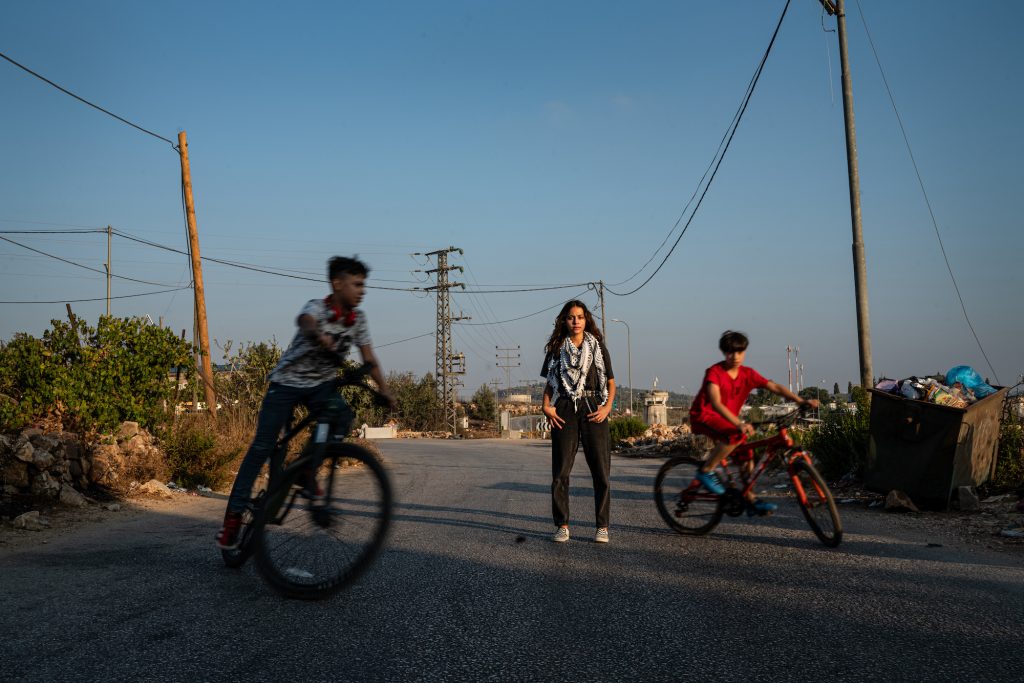“The most basic right, the right to life, is violated.”
This year marks 55 years since the occupation of the West Bank and the Gaza Strip. It also marks 15 years since the crippling air, land, and sea blockade of Gaza, which relegated nearly two million people to live in an “open-air prison.”
Since the occupation began, scores of Palestinians and their families have been displaced from their homes and barred from returning to their native land. For people in Gaza, imposed closures have made it all the more difficult, at times impossible, to leave, cementing both injustice and indignity as harsh daily realities that many are forced to endure.
For most of us, the daily conditions of life in a place like Gaza are unimaginable. But, for Gazans, soaring levels of unemployment, dire economic conditions, and growing insecurity have become the norm.
ActionAid’s ongoing support for Palestinian rights and sustainable peacebuilding relies on strengthening ties between women and youth groups, advancing their influence, and growing their capacity for resilience. As such, women and young people are at the forefront of our humanitarian response. We partner with local groups to support the most vulnerable and marginalized individuals and communities with food, medicine, hygiene kits, psychosocial support, fuel for generators, and agricultural supplies. Our partners are on the ground, in real-time, sharing their perspectives. Here are some of their stories:
Samah Kassab – Senior Program Officer, ActionAid Palestine
Samah is a Senior Program Officer with ActionAid in Palestine. Here, she stands amid the destruction and devastation caused by recent airstrikes in Gaza. She shares that infrastructure has been continually decaying due to years of constant attack and that some buildings have been reduced to piles of rubble, tall enough for people to climb. The ongoing violence has led to a notable deterioration of both the health and education sectors. Many civilians have been displaced from their homes and forced to seek refuge with their relatives, who are unequipped and unprepared to house them.
When speaking about the impact on the lives of people in Gaza, Samah shared:
“The most at risk are civilians, including women and children. Our children cannot sleep because they are afraid. Raids have hit more than 500 housing blocks. Attacks are targeting innocent children and women – how can they threaten the security of any country?“
Janna Jihad, Journalist, Nabi Saleh
Janna Jihad is a journalist and activist who has documented the abuse and international law violations endured by Palestinians daily. She uses her voice to speak about experiences shared by her family and her community in a village called Nabi Saleh, just over 60 miles from Gaza. She regularly sheds light on the daily struggles of children living under occupation.
“Families wake up in the middle of the night to the sound of bombs right outside their windows,” Janna shared
Janna believes that this generation is the generation of change – the generation that has the power to one day liberate Palestine and transform the world into a place where lives are not at constant risk of conflicts caused by inequality and colonization, one where everyone can live normal lives.
Mervat Ali-Buhtaimi, Mother, Gaza
In May of 2021, Mervat Ali-Buhtaimi gave birth to her daughter, Sedra, after the 11-day bombardment of Gaza. Before Sedra’s birth, Mervat was extremely worried about the health of her baby and the prospect that she might actually have to deliver at home without the help of professionals.
Women in Gaza have been, and are, continually forced to give in the midst of violence, which leads to an increased risk of death for both baby and mother, and increased vulnerability to psychological issues caused by the threat of war.
Mervat shared,
“One of my fears during the attacks was to deliver my baby inside my house, without being able to reach the hospital. I suffered from severe pain, like labor pain, and I couldn’t go to the hospital. I was afraid that I might deliver her, and she may suffer from problems.”
Helena Mesleh, Psychologist, Northern Gaza
Helena works at the Al-Awda Hospital in Northern Gaza. As a psychologist, she provides psychotherapy to pregnant women before and after the delivery process.
Violence has largely affected Helena’s work. Many of her patients, especially those in labor and those in need of operations, are rightfully terrified by the threat of airstrikes and war. Even the children she works with face extreme stress and trauma, noting that they, too, suffer from anxiety, fear, bed-wetting, introversion, and social isolation. Some of the most saddening pieces of her experience come specifically from her work with pregnant women and new mothers. Helena shares:
“Some women were unable to breastfeed their babies, hug them, or even accept them because they came during difficult circumstances. Others had symptoms such as sleep disorders and eating disorders as a result of the bombing and fear of losing their children, loved ones, or homes…”
In response to the impacts of violence on women and children in Gaza, ActionAid is working with local partners to provide psychosocial support to 200 women and children most affected by the conflict and a supported education program for 80 children from the four areas in Gaza, which aims to reach 3rd and 4th-grade students with lower academic abilities in Arabic, Math, and English.

